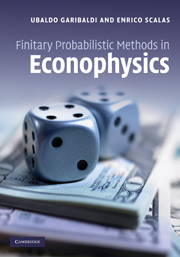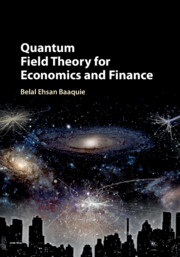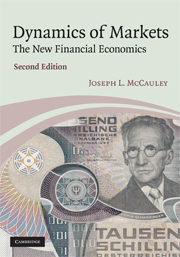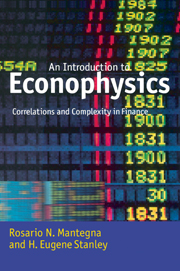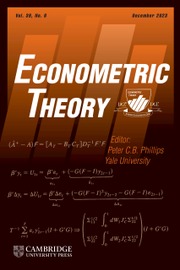Finitary Probabilistic Methods in Econophysics
Econophysics applies the methodology of physics to the study of economics. However, whilst physicists have good understanding of statistical physics, they may be unfamiliar with recent advances in statistical conjectures, including Bayesian and predictive methods. Equally, economists with knowledge of probabilities do not have a background in statistical physics and agent-based models. Proposing a unified view for a dynamic probabilistic approach, this book is useful for advanced undergraduate and graduate students as well as researchers in physics, economics and finance. The book takes a finitary approach to the subject, discussing the essentials of applied probability, and covering finite Markov chain theory and its applications to real systems. Each chapter ends with a summary, suggestions for further reading, and exercises with solutions at the end of the book.
- Proposes a unified view for a dynamic probabilistic approach
- Discusses the essentials of applied probability, and covers finite Markov chain theory and its applications to real systems
- Each chapter contains worked examples, and exercises with solutions at the end of the book
Reviews & endorsements
"The book by U. Garibaldi and E. Scalas stands out by developing and applying these models in a systematic way in a primarily economic context. It is designed as a textbook targeted at graduate or advanced undergraduate students in quantitative natural and social sciences, as well as researchers in applied mathematics, physics, economics and finance."
Leonid V. Bogachev, Mathematical Reviews
Product details
October 2010Hardback
9780521515597
342 pages
253 × 178 × 21 mm
0.83kg
23 b/w illus. 34 exercises
Available
Table of Contents
- 1. Introductory remarks
- 2. Individual and statistical descriptions
- 3. Probability and events
- 4. Finite random variables and stochastic processes
- 5. The Pólya process
- 6. Time evolution and finite Markov chains
- 7. The Ehrenfest–Brillouin model
- 8. Applications to stylized models in economics
- 9. Finitary characterization of the Ewens sampling formula
- 10. The Zipf–Simon–Yule process
- Index.

